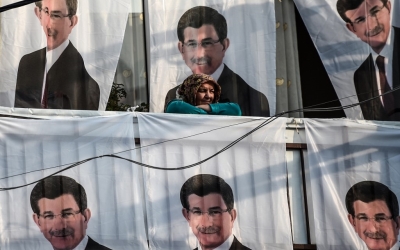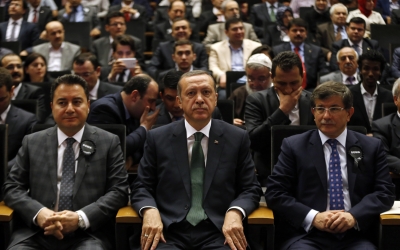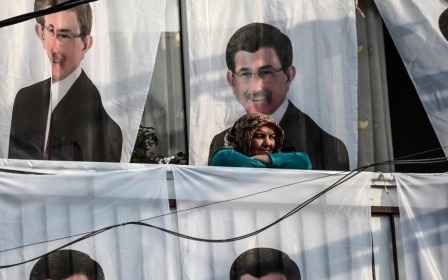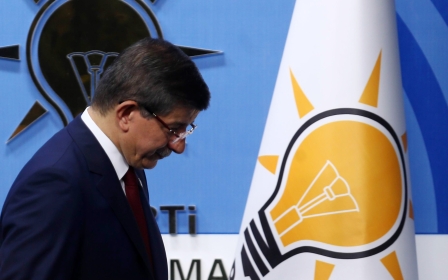Facing expulsion, former Erdogan ally Davutoglu resigns from AKP
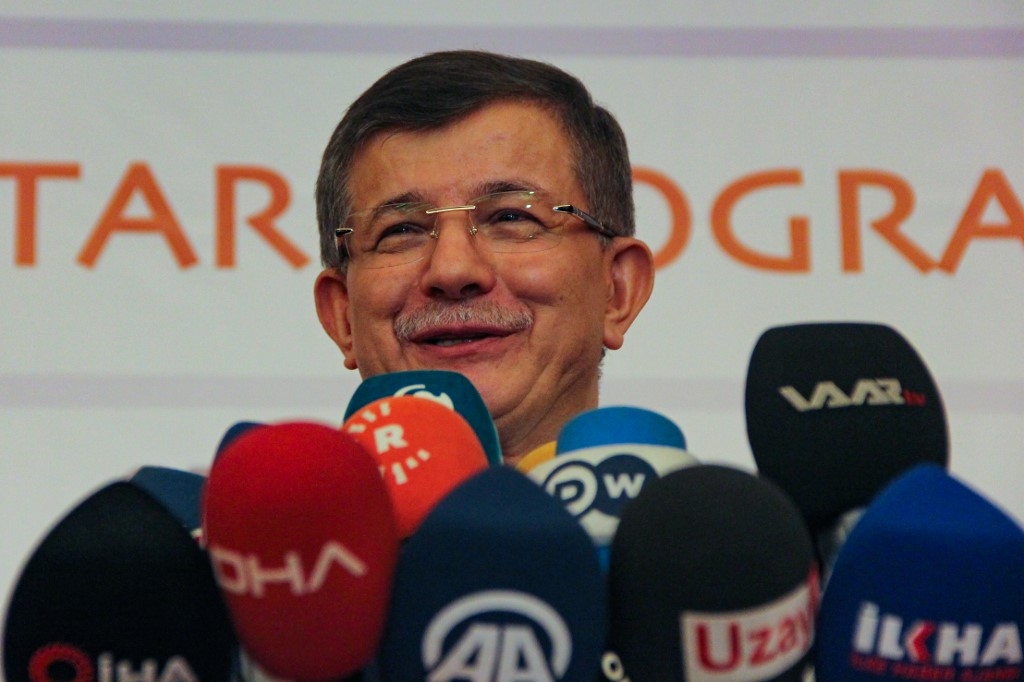
Former Turkish Prime Minister Ahmet Davutoglu and his allies resigned from the ruling Justice and Development Party (AKP) on Friday, pre-empting the outcome of the official expulsion process started by the party's executive commitee against them earlier this month.
Speaking at a press conference in Ankara, Davutoglu said that since the release of a manifesto in April his faction had tried to voice criticism from within the party on the failings of government policies with regard to corruption, democratic rights and freedoms.
But he said their statements had fallen on deaf ears. “We didn’t receive any response from them. Instead, we were accused of treason, and animosity towards the party,” Davutoglu said.
He added: “By starting the process of expulsion on 2 September, the party actually confirmed that it abandoned its founding principles. In order to relieve our grassroots from seeing their chairman getting expelled, we are resigning from the party that we spent our sweat and labour in.”
The Central Executive Committee of the AKP, led by President Recep Tayyip Erdogan, reported Davutoglu, and three former AKP MPs, Ayhan Sefer Ustun, Selcuk Ozdag and Abdullah Basci, to the party's disciplinary committee earlier this month on charges of insulting the party and its members through the media.
The party gave the Davutoglu faction two weeks to respond to the charges.
Davutoglu, who appeared emotional as he spoke, said that the expulsion process was not based on the rule of law and there was no need to follow it.
'New democratic order'
“We would like to establish a new democratic order based on rule of law, transparency, competency, freedom, which is also a free economy with real competition and open to the world. We invite everyone who feels responsible within this common sense to come together and work together,” he said.
He declined to take questions from journalists.
Several reports in the Turkish media have suggested that Davutoglu will officially form his own party in November.
Davutoglu and his allies have been deliberating on the expulsion decision for the last week by conducting multiple meetings to agree a way forward, according to sources close to the faction, who briefed the media.
Another dissident, former deputy prime minister Ali Babacan resigned from the party in July to establish his own breakaway group.
In his first public remarks since the resignation, Babacan said this week that he would not move together with Davutoglu due to differences on style and policies.
Babacan, a former economy tzar who was credited for the economic boom in the country in the early 2000s, is believed to be aligned with former president Abdullah Gul and former ministers Sadullah Ergin and Besir Atalay, who subsequently split from the AKP this year.
Sources told MEE that one of the main factors that has divided the breakaway AKP opposition was Davutoglu’s issues with former president Gul, who is seen as an older mentor to Babacan.
Sources close to the Gul camp allege they are at odds with what they describe as Davutoglu's pan-Turkist and Islamist political ideas, as well as his political style, which they suggest mirrors Erdogan's own powerful leadership.
The Davutoglu faction has rejected the allegations, saying Davutoglu was ready to show humility and join Babacan’s party as a mere individual without a rank.
“Babacan couldn't convince his friends, including Gul, to include Davutoglu in the new movement," a source told MEE.
"Now they come up with excuses, adhering things to him to legitimise their stance."
Middle East Eye delivers independent and unrivalled coverage and analysis of the Middle East, North Africa and beyond. To learn more about republishing this content and the associated fees, please fill out this form. More about MEE can be found here.


